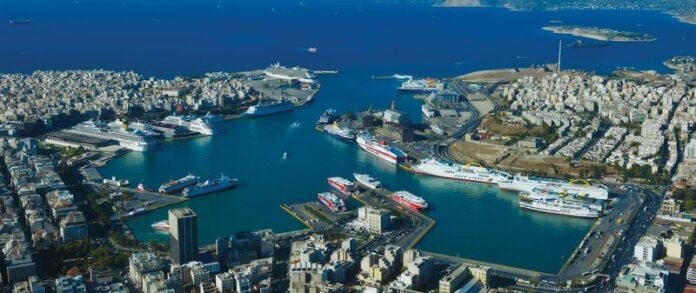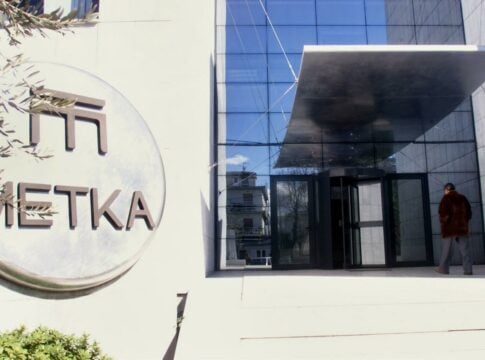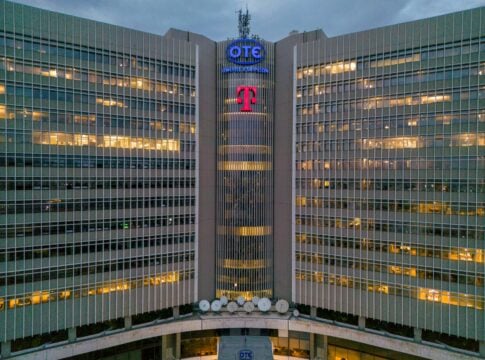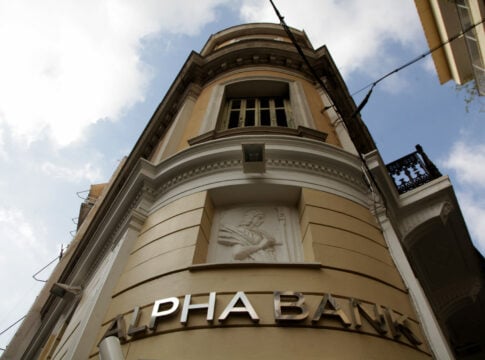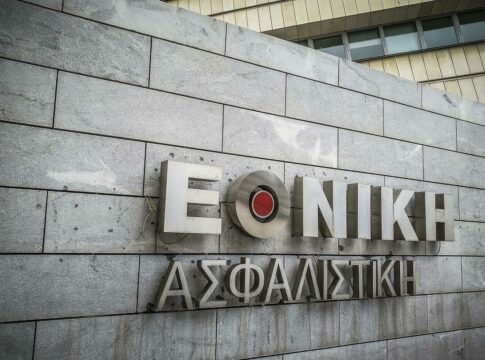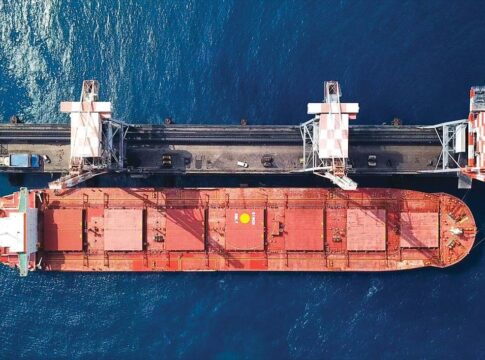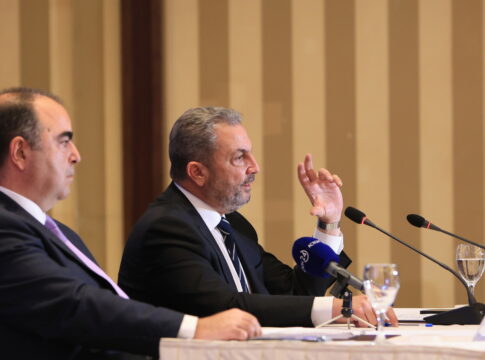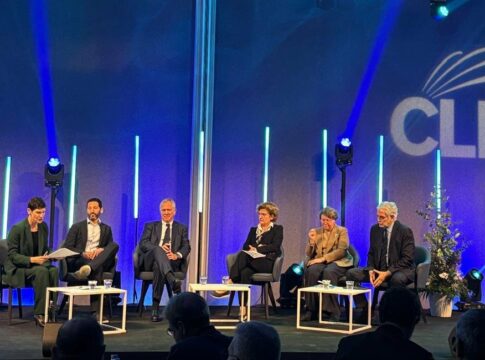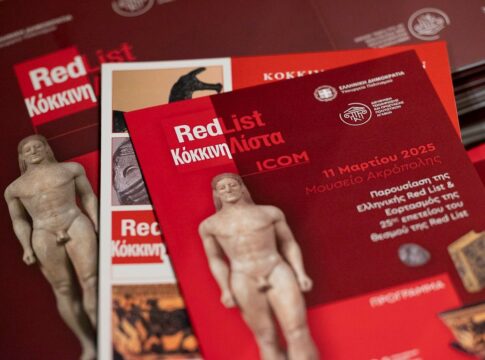Since 1972, when diplomatic relations between Greece and China were established, the two countries enjoy good relations. During the last decade Greece and China have increased their cooperation, especially in the economic and cultural sectors. The 2016 port deal in Piraeus, without doubt, marked a new period in Sino-Greek relations that was not only characterized by growing economic interactions, but also by steps towards further expanding the relationship. Economically[1], the port deal is considered one of the largest foreign investments ever made in Greece, hailed as successful by Athens and Beijing. By 2019, the Piraeus port had turned into the sixth largest container handler in Europe and the top port in the Mediterranean, ranking as one of the world’s best-connected ports.
According to Bank of Greece data from 2011–2021, China (including Hong Kong) has emerged as the sixth top source of investment activity in Greece, after Switzerland, Cyprus, Germany, France, and the Netherlands, and the first among non-Europeans. In addition, in 2021 China became Greece’s third most important trade partner with a share of roughly 7.7%, following Germany and Italy, with imports reaching 3,743 billion euros.
In the beginning of 2024, the Piraeus Port Authority S.A. (PPA S.A.) announced its financial results for the fiscal year 2023. Total revenues reached €219.8 million, up by 12.9% (€194.6 million in the 2022 fiscal year). Profits after taxes also rose significantly to €66.8 from €52.9 million in 2022, reflecting a 26.3% increase. In addition, the dividend per share surged by 29% to €1.34 from €1.04 in 2022. Notably, these results represent the highest performances in the company’s history for both revenue and profitability, marking the third consecutive year of improvement.
In recognition of the Company’s business excellence, recently PPA S.A. accepted two awards, marking the best performance in the Company’s history. Specifically, the “Diamonds of the Greek Economy 2023” prize, was awarded by the Minister of Transport and Infrastructure, during a special event organized by Naftemporiki media group. The Company was honored with the prestigious award for its significant contribution to the country’s transportation sector. Additionally, PPA S.A. was honored with the title of “True Leader” by ICAP CRIF, as it was among the top companies that have excelled in the Greek market and met all the objective and measurable criteria set by this renowned institution. In 2023, PPA S.A. was named again, for a second consecutive year, one of the Most Sustainable Companies in Greece.
Apart from the company’s unquestionably positive financial results, it is important to consider the company’s social footprint in Greece, especially in the sensitive area of employment, a sector which after financial crisis in 2009 and pandemic challenged a lot in Greece. In order to understand the working conditions in PPA, it is necessary to present the labor market in Greece in order to evaluate the contribution of the company within the Greek environment.
The Greek labor market after the Crisis
The years since the onset of the economic crisis[2], the Greek economy as well as its labor market have experienced dramatic changes. Employment[3] has been severely hurt with unemployment rates reaching unprecedented high numbers. At the same time, Greece has been undergoing a transition from traditional employment to non-standard forms of work, as the case of many other European countries. These include forms of work such as part-time and temporary or working during nights and weekends. At the same time, employment is often coupled with conditions such as unpaid overtime, low salaries or fear of losing their job. All the above are an inevitable consequence of the crisis, as it is a way for employers to cut costs while trying to preserve production.
According to OECD in 2023 unemployment rate in Greece was 10.9%. It should be mentioned that unemployment rate in Greece, despite the significant decrease is still much higher than the EU average. According to Financial Times[4], the latest rebound of economy has only just slightly lifted Greek living standards relative to the EU average in the last couple of years — and not enough to lift them from their place as the poorest people in the eurozone. This is a relatively new thing for Greece, as per-capita GDP (purchasing power parity, PPP) was similar to that of the EU average until 2009. Since then, 10 countries have seen living standards rise above those in Greece. According to the same analysis of Financial Times, real wages have been steadily declining until 2022, the latest available in the OECD database, and are down 30 per cent from their pre-financial crisis levels, leaving the country with one of the lowest average salaries among developed economies.
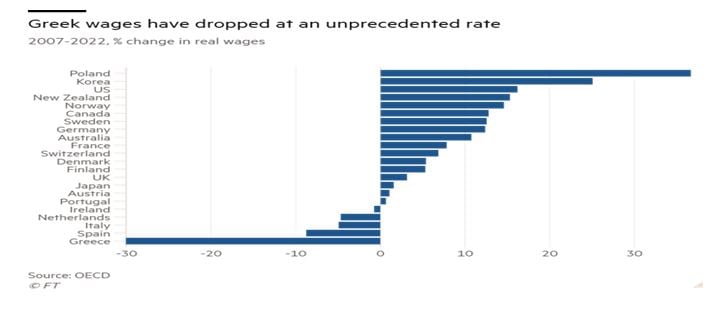
As for the labor market as a whole in Greece, wages and pensions remain at low levels, with inflation putting further pressure on household incomes. According to the official figures of the Ministry of Labor (2024) and of the European Union, οver 50% of employees in the private sector are paid 800 or less euros net per month. In other words, half of the employees of the private sector lives in poverty. 70% of employees are paid up to 950 euros net per month. In other words, 7 out of 10 workers in the private sector are in the situation of low wages. Only 10% are paid more than 1,450 euros per month. That means, that those who receive a good salary related to the country’s life standards constitute a very small part of all employees, only 1 in 10. Only 3.63% of employees are paid very well, that is, they receive more than 2,025 euros net.
In addition, in the period 2012-22 Greece had the lowest increase rate of wages among the OECD member states. Increases reached just 1.5%. In 2022, the average gross annual earnings of an employee in Greece amounted to 24,709 euros, compared to 24,330 euros in 2012, that is, the average annual nominal salary increased by only 370 euros in a decade. But if we consider inflation in the equation, then we are talking about a 5.9% reduction in real wages. The situation is a little different for listed companies.
According to a recent analysis published by Mononews, based on salary data from published reports for a broad sample of 62 companies listed on the Athens Stock Exchange, major oil companies and real estate companies provide the highest salaries to their staff. At the top of the salary scale is Motor Oil (1,425 employees) with annual remuneration for 2023 averaging €97,239 gross, per employee. Including the extra bonus granted from the net corporate profits (which rose 15.1% last year, reaching an all-time high) and corresponded to almost two monthly salaries. Also, the employees had received another 10.4 million euros as a bonus. The list of the 5 companies with the highest paid employees is completed by Prodea (real estate), Lamda Development (real estate), HelleniQ Energy and Noval Property with an average gross salary of 58,090 euros. Among the rest of the listed companies, high in the list follow the employees in the OPAP group who receive 47,700 euros, in PPA S.A. with 46,667, in ThPA[5] S.A. with 43,586, in Aegean Aviation with 43,381, while for the 105 employees of the technological company Profile the salaries were 43,083 euros. In the banking sector, the gross wages of employees range from 31,514 euros (Attica Bank) to 44,109 euros (Eurobank). In the rest of the listed companies that are referred in the analysis, the gross wage earnings for 2023 are considerably lower, in some cases around 15,000 euros per employee.
According to a survey carried out by the General Confederation of Greek Workers (GSEE) on the Greek economy, which was recently released, in terms of the quality of employment, Greece, based on official indicators, is in the last place among the EU member states. The indicators that determine the specific result (for 2021) are six: i) the quality of income, ii) forms of employment and professional security, iii) working time and work-life balance, iv) working conditions, v) the development of skills and the possibilities of professional development and vi) Institutions of collective representation. The employment quality index for Greece is at 14%, when the penultimate Poland is twice as far away, i.e. at 28%. All the other countries are significantly above 30%. Denmark takes the lead with a rate approaching 90%. It is a significant difference compared to Greece, which makes the domestic work environment even more gloomy. Moreover, it was found that countries with better industrial structures, which is not the case of Greece, can achieve much higher percentages in the quality of work they offer with Denmark, Sweden, the Netherlands, Luxembourg and Austria occupying the top five places.
The contribution of PPA S.A. in Greek labor market
The PPA S.A. is considered one of the largest employers in Greece with the total number of employees in 2023 was 1.018 and until August 2024 amounting to 1.086. Among them 13 are expatriates, and 1.073 are local staff. Of the 1086 employees, men amount to 933 and women to 153 while 241 employees are dock workers, 45 Supervisors, 418 office employees and 382 technical staff. Regarding the educational background of the staff, 3 employess have Phd, 110 master degree, 199 bachelor degree, 739 have graduated from secondary education and 35 have graduated from primary education.
In 2023, the average age of employees is 48 years with 558 employees were older than 50 years old, 405 between 30-50 years old and 55 younger than 30 years old.

According to the General Confederation of Greek Workers (GSEE) survey, the first indicators of the quality of employment is the quality of income. Regarding the gross annual salaries of PPA employees amount to 92,920.82 euros for executives and managers, 42,645.29 euros for dock personnel and foremen/supervisors and 46,600.49 euros for office workers.
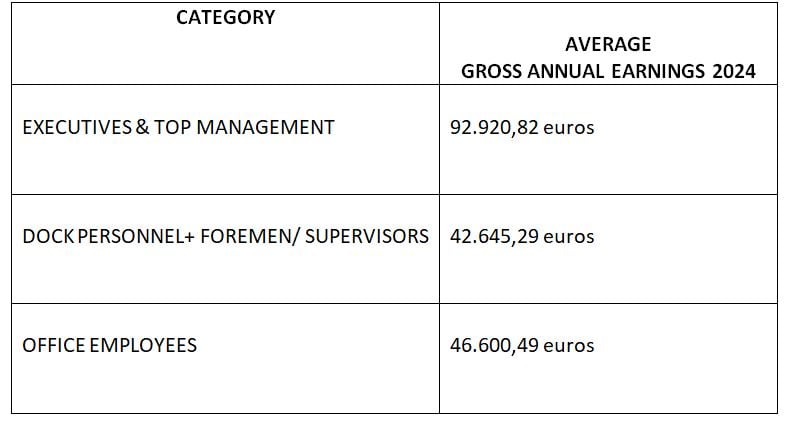
According to the official and published data of listed companies, the average annual gross remuneration in PPA S.A. amounts to 46,667 euros and feature PPA S.A. as one of the employers offering the highest remuneration within Greek territory, and the employees of the company among the best paid and with annual salary increases that allow them to maintain their purchasing power. If we also take into account that the vast majority of PPA workers, about 70%, are secondary school graduates who usually receive lower wages, this makes their wages quite high especially compared to other workers with the same qualifications in Greece. In addition to the annual income, the PPA employs workers with heavy and unsanitary insurance such as dock workers, supervisors, foremen, drivers, operators & technicians. Moreover, administrative employees are employed with mixed civil insurance and finally in the PPA there is a category of employees who have a special insurance status as former permanent civil servants.
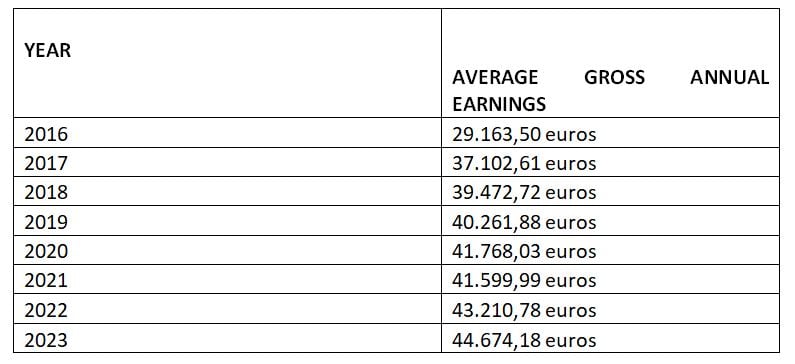
According to the General Confederation of Greek Workers (GSEE) survey, another important indicator of the quality of employment is referred to the forms of employment and professional security. Regarding this indicator for the year 2023, the total number of employees was full-time while 968 people were permanent staff while 50 people were temporary. In addition, the average working years in the company is about 16.7 years.
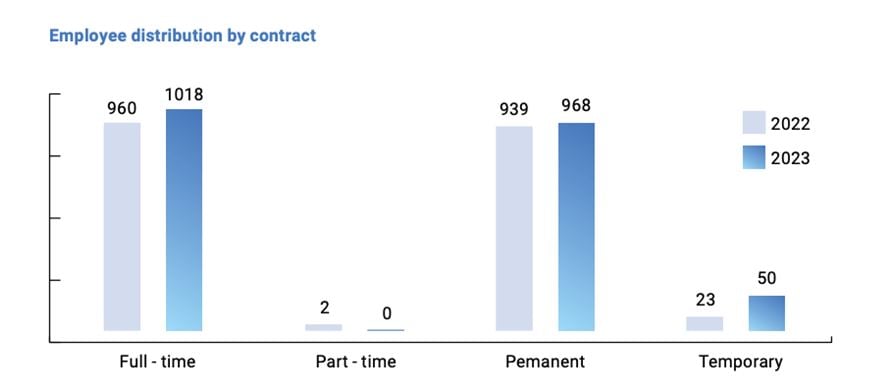
Since 2016, when the Concession Agreement between the Greek government and COSCO was signed, the company guaranteed that it would not fire any existing workers. The first few years after the concession agreement, a significant number of retirements were observed, which was mainly due to the reforms of the Greek government and the effort of many workers throughout Greece, who had secured the right to retire, to leave their jobs taking advantage of the rights of earlier, more favorable laws.
In approximately 8 years of the Chinese investment in the port of Piraeus, only 5 employees have been fired by the company while a total of 409 employees have been hired and 319 have retired. It is observed that in recent years and especially after the pandemic, the number of new hires increases significantly, reaching 119 only in 2023 and 93 only in the first 7 months of 2024.
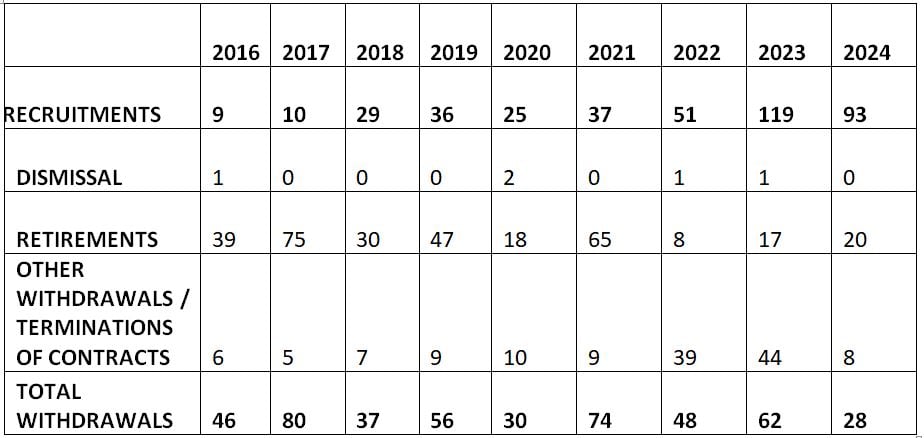
The General Staff Regulation drafted as per the provisions of Law 1876/1990 and Article 10A (a) of Law 4404/2016 “Ratifying the amendment dated 24.6.2016 and codification into an integrated text of Concession Agreement provisions”. The GSR is intended to regulate all employment relations, on the basis of the principles of equality and transparency, with a view to ensuring the smooth and efficient operation of all Company Departments and serving effectively the common interests of the Company and its staff. In this framework the PPA S.A. has signed collective labour agreements with:
- The Federation of Permanent Employees of the Greek Ports (OMYLE) in 2023 with Reference No: ΕΣ172 and covers 794 employees,
- The Workers’ Union in 2023 with Reference No: ΕΣ9 and covers 241 employees, and
- The Association of Supervisors and Main Workers (OFE) in 2022, with Reference No Ε104 and covers 45 employees.
The PPA S.A., as employer, is liable to (articles 11 e, f, g of GSR) which means that is obliged to ensure that the trade unions of its employees are regularly informed of all staff-related matters and of the Company’s business activities in general, where those have an impact on employment relations. In addition, company is obliged not to intervene in any manner in the legitimate trade union activities of employees and promote interactive discussion with the representatives of employees, especially with any first-degree and second-degree trade unions representing its employees in the context of collective autonomy and informed dialogue. Moreover, PPA S.A. is obliged to comply consistently with all labor regulations and all individual and Collective Labor Agreements applicable to its staff.
According to the official data, the PPA S.A., beyond the benefits required by the law, provides additional benefits to the staff. Such as: 1) Fuel voucher and car allowance for Managers, 2) Ticket restaurant vouchers, 3) Hospital and out-of-hospital care coverage, 4) Interest-free loans for health and serious reasons, 5) Employee marriage allowance[6] , 6) Employee’s child marriage allowance (per child), 7) Annual gift-voucher, approximately per child up to 18 years old, 8) Monthly allowance for the children of employees in nurseries, 9) Provision of allowance for camping expenses and summer camps for employees’ children up to 14 years old, 10) Annual awards of excellence for students with “excellent” performance 11) Sponsorships to children for exceptional distinctions on sports and 12) Gift vouchers. Specifically, during 2023, the company approved 147 loans to the company’s staff and 17 employees of PPA S.A. took parental leaves, 13 men and 4 women. After the end of parental leave all employees returned to work and all of them were still employed 12 months after their return. In addition, the same year the company approved four sponsorships to children for exceptional distinctions on sports, eight marriage allowances, 24 awards for excellence, 123 summer camp allowances & 59 nursery allowances. Also, PPA SA every year offers its employees scholarships in Postgraduate Studies Programs in order to achieve further development and specialization of its staff.
Since 2016, PPA S.A. also offers added-value training to its employees by implementing several training programs in different fields in which employees are invited to participate at the Company’s expense. Training programs cover a wide range of aspects, among others, related to health and safety, environmental protection, and management systems. The below graphs present useful information regarding the employees training in terms of main categories of training subject and staff category for 2023.
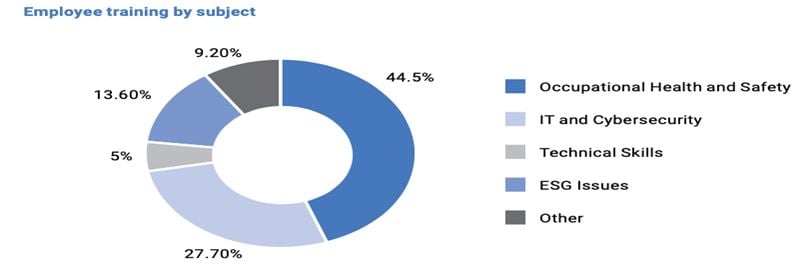
According to the company’s data, in total the company provided 8,757 training hours, amounting to 8.6 average training hours per employee and 17.2 average training hours per woman employee. Approximately 86.5% of employees completed training while during the last year a 40.6% increase in employee training costs was found.
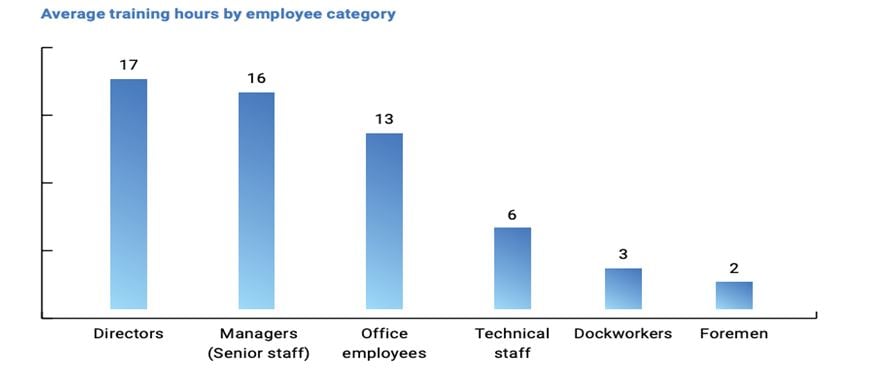
Another critical indicator of employment quality is related with working conditions. In this framework, PPA is implemented a specific policy to prevent and combat violence and harassment at work, promoting safety, respect and trust in the workplace. PPA S.A. encourages all employees to communicate any incident of violence and harassment, and to this end, they have defined a violence and harassment incidents reference person and a Complaints Management Team, that handles the complaints. The company is willing to maintaining a healthy and inclusive working environment and to secure transparent operation.
In order to ensure the above, recent years, company employees have established a Workers’ Health and Safety Committee (W.H.S.C.), consisting of their elected representatives in the company. The responsibilities of the Committee derive from the applicable legislation and regular meetings take place with or without the presence of the employer’s representatives. Apart from the vital role of the Committee in the Company’s H&S risk management, this is also an effective communication channel for employees to provide feedback and emerge Health & Safety issues to Management Team. The Company’s representatives record the Committee’s requests and inform the department of interest who responds accordingly upon request evaluation. The Management Team of the Company is kept informed and aware of Health and Safety related issues through the weekly operational meeting. During this meeting, Security Department informs Management Team for recorded incidents and any other related issues that may have been arisen. Further mitigation or corrective actions may result from this meeting as a management decision ensuring a healthy and safe working environment for all employees. In addition, in 2023, PPA organized 13 seminars in Health and Safety Issues of about 4470 training hours which 1342 participants.
Conclusion
The years since the onset of the economic crisis, the Greek economy as well as its labor market have experienced dramatic changes and transition from traditional employment to non-standard forms of work like part-time or temporary work etc. Although the labor market conditions improved the last very few years, employment is often coupled with conditions such as unpaid overtime, low salaries or fear of losing job. The official figures of the Ministry of Labor (2024) and of the European Union, show that half of the employees of the private sector lives in poverty, 7 out of 10 workers in the private sector are in the situation of low wages and only 1 in 10 receive a good salary related to the country’s life standards. In addition, in the period 2012-22 Greece had the lowest increase rate (1.5%) of wages among the OECD member states. In 2022, the average gross annual earnings of an employee in Greece amounted to 24,709 euros and in 2023 unemployment rate in Greece was 10.9%. According to a survey carried out by the GSEE on the Greek economy in terms of the quality of employment, Greece, based on official indicators, is in the last place among the EU member states with the employment quality index for Greece to be around 14%, when the penultimate Poland is twice as far away, i.e. at 28%.
In an unstable labor market that has to face and overcome several challenges due to recent crises, PPA S.A. seems to make efforts to align itself with the GSEE employment quality indicators and create a quality working environment for its employees. PPA S.A. is considered one of the largest employers in Greece with total number of employees in August 2024 to reach 1.086. Among them only 13 are Chinese, and the rest 1.073 are local staff. The majority of the local staff, 739, although they don’t have university education (secondary and primary education) they receive relatively higher salaries than employees in other companies with the same qualifications.
In addition, in 2023, the total number of employees was full-time while 968 people were permanent staff with long term relation with the company which is about 16.7 years. Since 2016, only 5 employees fired by the company and the last two years, 2023 and 2024 (until July) the company hired 212 new employees.
According to official and published data, in 2023, the average annual gross remuneration in PPA S.A. amounts to 46,667 euros, much higher than the salaries that the majority of listed companies in Greece offer to their staff. Also, it is important to note that since 2016 the annual increase rate of PPA’s employees is much higher than the 1.5% which is the average increase rate in Greece the last 8 years. In addition to the annual income, the PPA employs workers with heavy and unsanitary insurance such as dock workers, supervisors, foremen, drivers, operators & technicians.
Moreover, PPA S.A. after negotiations with its employees has signed three Collective Labor Agreements with the unions that cover the total number of company’s employees and give them the legal framework to protect their rights. Also the company beyond the benefits required by the law, provides additional benefits to the staff as mentioned above and offers training programs that cover a wide range of aspects. In order to ensure the working conditions (Health & Safety), the company’s employees have established a Workers’ Health and Safety Committee (W.H.S.C.), consisting of their elected representatives in the company.
In conclusion, the above analysis shows that PPA SA as the solid administrator of the port of Piraeus is an employer that makes significant efforts to create a safe and quality working environment for its staff. During the years, have been identified some failures and omissions that need to be addressed in the near future, but what emerges from the study is that a reliable operating framework has been created that largely addresses most of the failures.
An equally important parameter for the working conditions in the port, which is not covered in this report but will be the subject of a study in the future, concerns the working conditions that PPA’s cooperating companies provide to their employees. Some of these companies are controlled by PPA while some others are subcontractors that have been selected either directly by PPA or by the cooperating companies. The performance of these companies is considered very important because they are responsible of many port’s projects and in the eyes of local community and Greek people, cooperating companies, subcontractors and PPA S.A. are one entity with Chinese investors to be responsible for the overall operation of the port.
[1] Stroikos, Dimitrios, ‘China’s Engagement with Greece under the BRI: Economics, Politics, and International Imperatives’, in Indrajit Roy, and others (eds), Rising Power, Limited Influence: The Politics of Chinese Investments in Europe and the Liberal International Order (Oxford, 2024; online edn, Oxford Academic, 21 Mar. 2024), https://doi.org/10.1093/oso/9780192887115.003.0006, accessed 23 Aug. 2024.
[2] Greece faced a sovereign debt crisis in the aftermath of the financial crisis of 2007-2008. Widely known in the country as The Crisis. The government enacted 12 rounds of tax increases, spending cuts, and reforms from 2010 to 2016.
[3] Hellenic Observatory, European Institute, Research at London School of Economics, “Precarious employment in Greece: Economic crisis, labour market flexibilisation, and vulnerable workers” by Ilias Livanos and Evi Tzika, May 2022
[4] https://www.ft.com/content/ba7e18ea-eaf4-4104-bbe7-bb7f97d182e5
[5] Thessaloniki Port Authority S.A.
[6] The marriage allowance provides essential support in the form of extra pay to married workers, the majority of whom have more financial commitments and burdens than their unmarried counterparts. In Greece, following recent developments regarding the autonomy of the social partners (rooted in the bailout Memoranda) to decentralize the collective bargaining system to the level of the individual, the marriage allowance is in danger of being abolished definitively, which will mean a further reduction in Greek workers’ incomes.


